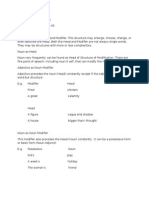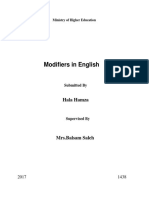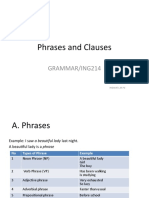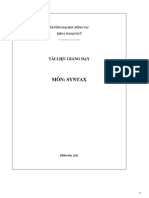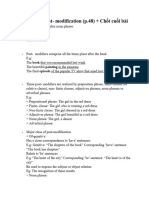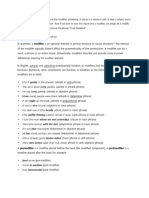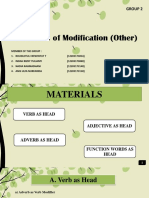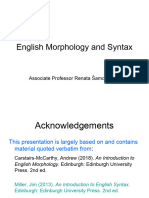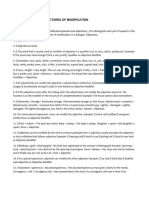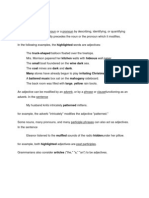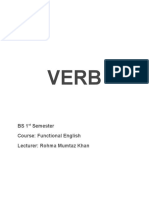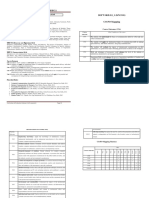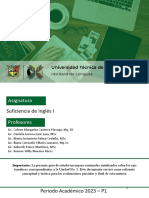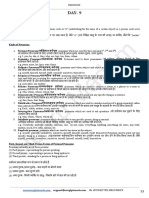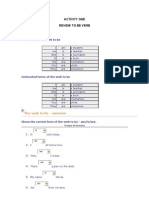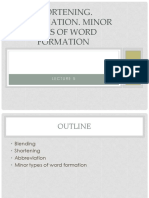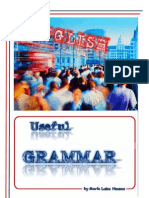0% found this document useful (0 votes)
27 views16 pagesStructure of Modification
The document discusses the structure of modification in English grammar. It describes how a modifier can broaden, qualify, select, change, or describe the meaning of the head element. It provides examples of different types of modifiers including adjectives, nouns, verbs, adverbs, and prepositional phrases.
Uploaded by
Mchmmd ArCopyright
© © All Rights Reserved
We take content rights seriously. If you suspect this is your content, claim it here.
Available Formats
Download as PPTX, PDF, TXT or read online on Scribd
0% found this document useful (0 votes)
27 views16 pagesStructure of Modification
The document discusses the structure of modification in English grammar. It describes how a modifier can broaden, qualify, select, change, or describe the meaning of the head element. It provides examples of different types of modifiers including adjectives, nouns, verbs, adverbs, and prepositional phrases.
Uploaded by
Mchmmd ArCopyright
© © All Rights Reserved
We take content rights seriously. If you suspect this is your content, claim it here.
Available Formats
Download as PPTX, PDF, TXT or read online on Scribd
/ 16









